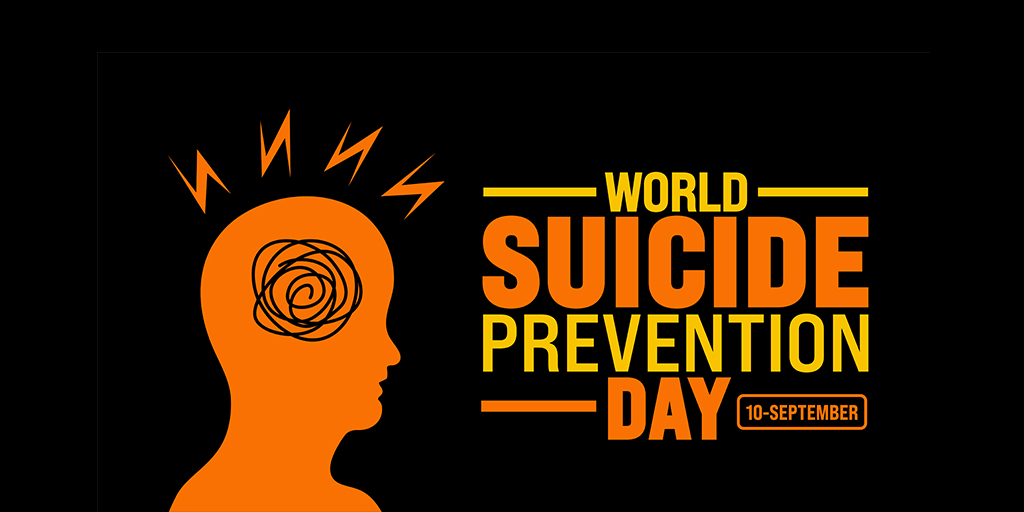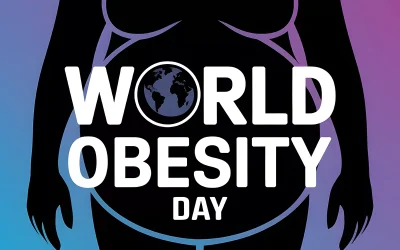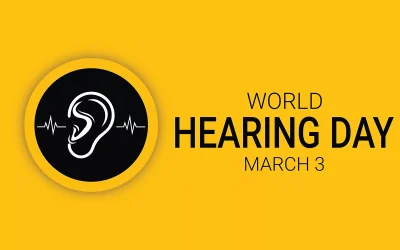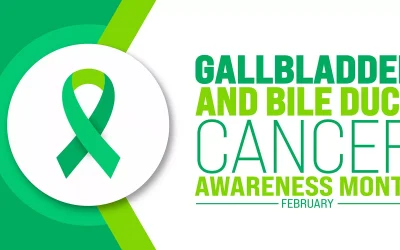World Suicide Prevention Day 2025: How Awareness Can Help Save Lives

Every year, more than 7,00,000 people lose their lives to suicide, which translates into more than one person every 40 seconds, accounting for about 1.3% of all global deaths. Strikingly, over half of these deaths occur before the age of 50, and suicide stands as the fourth leading cause of death among young people aged 15 to 29. For those who are left behind, the loss is not just a number, but a deep wound that changes families, friendships, and communities forever. World Suicide Prevention Day 2025 is a call to notice the quiet struggles around us, to listen without judgement, and to take small but powerful actions that can save lives.
Table of Contents
ToggleSignificance of World Suicide Prevention Day 2025
Observed on 10 September each year, World Suicide Prevention Day is a global initiative led by the International Association for Suicide Prevention (IASP) with support from the World Health Organization (WHO). Its aim is to raise awareness, reduce stigma, and encourage actions that can help save lives.
The 2025 theme, “Creating Hope Through Action”, emphasises that even small gestures of kindness, compassion, and understanding can make a meaningful difference. It calls on individuals, communities, and organisations to work together in creating supportive environments where mental health is prioritised and help is accessible.
This day is not only about acknowledging the challenge but also about inspiring collective action by breaking the silence, extending hope, and building pathways to prevention.
Understanding Suicide and Its Risk Factors
Suicide is a complex and deeply personal issue, often the result of many factors coming together rather than a single cause. It can affect anyone, regardless of age, gender, or background, and is often linked to experiences of emotional pain, hopelessness, or feeling like a burden.
Some common risk factors include:
- Mental health conditions such as depression, anxiety, or bipolar disorder.
- Past experiences of trauma or abuse that leave lasting emotional scars.
- Social isolation or loneliness, where support feels out of reach.
- Substance misuse, which can worsen mood and judgement.
- Chronic illness or disability that impacts daily life and independence.
- Major life stressors such as loss of a loved one, financial hardship, or relationship breakdown.
Recognising these risk factors does not mean predicting suicide, but it helps identify when someone might need extra care, understanding, and professional support.
Warning Signs and Early Intervention
Often, people thinking about suicide show signs, sometimes subtle, sometimes more obvious, that they are struggling. Being able to recognise these warning signs can be the first step in getting help.
Possible warning signs include:
- Talking about wanting to die, feeling hopeless, or having no reason to live.
- Withdrawing from friends, family, and usual activities.
- Extreme mood swings or sudden changes in behaviour.
- Increased use of alcohol or drugs.
- Giving away possessions or saying goodbye in unexpected ways.
- Sleeping too much or too little, or experiencing changes in appetite.
Early intervention matters. Reaching out, listening without judgement, and encouraging someone to seek professional help can make a life-saving difference. Even if you’re unsure, starting the conversation is often the most important step.
Effective Suicide Prevention Strategies
Preventing suicide requires a combination of personal, community, and healthcare efforts. While every situation is unique, certain approaches have been shown to reduce risk and offer hope.
Key strategies include:
- Access to mental health care: Counselling, therapy, and psychiatric support can help people manage distress and find healthier coping methods.
- Crisis intervention: Immediate support through helplines, crisis centres, and emergency services can prevent harm in urgent situations.
- Community awareness: Education programmes that encourage open conversations and reduce stigma around mental health.
- Safe media reporting: Responsible communication in media to avoid sensationalism and harmful portrayals of suicide.
- Reducing access to means: Implementing safety measures for medications, pesticides, firearms, or other potentially lethal items.
- Social connection: Strengthening family, peer, and community bonds to help people feel supported and valued.
Youth Suicide Prevention: Special Considerations
Young people face unique pressures, academic expectations, social media influence, bullying, and identity struggles that can impact mental well-being. Prevention strategies for youth may include:
- School-based counselling and mental health education.
- Peer support programmes that encourage openness and empathy.
- Guidance for safe and responsible online engagement.
- Early involvement of parents, teachers, and mentors in recognising distress.
By combining these strategies with compassion and early action, communities can make a real difference in preventing suicide.
Support Systems and Help Options
Help is available and reaching out can be the first step toward safety and recovery. Suicide prevention works best when people know where and how to find support.
Common options include:
- Helplines and crisis services: 24/7 confidential phone or text services that offer immediate emotional support.
- Counselling and therapy: Sessions with mental health professionals to address underlying issues and develop coping strategies.
- Support groups: Safe spaces to connect with others who understand similar challenges.
- Community programmes: Local initiatives offering workshops, peer mentoring, and awareness events.
- Hospital-based mental health care: Inpatient and outpatient services for those needing structured, professional treatment.
Why Choose Graphic Era Hospital for Mental Health Support?
Specialised Care
Graphic Era Hospital’s mental health team includes experienced psychiatrists, psychologists, and counsellors who work together to provide personalised care for each patient’s needs.
Advanced Facilities
With access to modern diagnostic tools, therapy rooms, and evidence-based treatment approaches, the hospital ensures safe and effective mental health support.
Patient-Centred Approach
Every patient is treated with compassion, dignity, and confidentiality. The care team involves individuals and their families in decision-making, ensuring support at every step of recovery.
Call for Awareness and Action
World Suicide Prevention Day 2025 is a reminder that each of us can play a part in saving lives. By learning to recognise warning signs, offering support without judgement, and encouraging professional help, we can create safer, more connected communities. Small actions, such as a listening ear, a kind word, or sharing resources can spark hope in someone’s darkest moments.
For confidential and professional mental health support in Dehradun, contact the mental health specialists at Graphic Era Hospital. Call 18008897351 to book an appointment and take the first step towards healing and recovery.
Frequently Asked Questions
What is the focus of World Suicide Prevention Day 2025?
The 2025 theme, “Creating Hope Through Action”, highlights the power of small acts of kindness, open conversations, and timely support in suicide prevention.
How can I access suicide prevention help near me in Dehradun?
Graphic Era Hospital offers confidential counselling, therapy, and psychiatric care for individuals in crisis. Call 18008897351 to connect with a mental health specialist.
What are some effective suicide prevention methods?
Key methods include early recognition of warning signs, access to mental health services, crisis helplines, community awareness programmes, and reducing access to harmful means.
Why is youth suicide prevention important?
Young people face unique challenges such as academic stress, social media pressure, and bullying, making targeted school-based counselling, peer support, and digital safety programmes essential.
What activities are organised on World Suicide Prevention Day?
Activities may include awareness walks, webinars, candlelight vigils, community talks, and social media campaigns promoting mental health resources and suicide prevention options.
Can hospitals help in the prevention of suicide?
Yes. Hospitals provide professional suicide prevention options including psychiatric evaluation, inpatient mental health care, crisis intervention, and personalised recovery plans.
By Specialities
- Bariatric Surgery
- Cancer Care
- Cardiology
- Dental
- Dermatology
- Diabetes & Endocrinology
- Endocrinology and Diabetes
- ENT (Ear Nose Throat)
- Eye Care
- Gastroenterology
- Haematology
- Health Awareness
- Health Care
- Health Tips
- Hematology
- Hepatology
- Internal Medicine
- Mental Health and Behavioural Sciences
- Metabolic
- Neonatology
- Nephrology
- Neurology
- Nutrition & Dietetics
- Obstetrics & Gynaecology
- Oncology
- Ophthalmology
- Orthopaedics
- Paediatric
- Physiotherapy & Rehabilitation
- Plastic and Reconstructive Surgery
- Psychology
- Pulmonology
- Rheumatology
- Spine
- Urology
Recent Posts
Need expert medical advice?
Share your details and our healthcare specialists will reach out to assist you.
By proceeding, you acknowledge and agree to our Privacy Policy, Terms of Use, and Disclaimer.



















